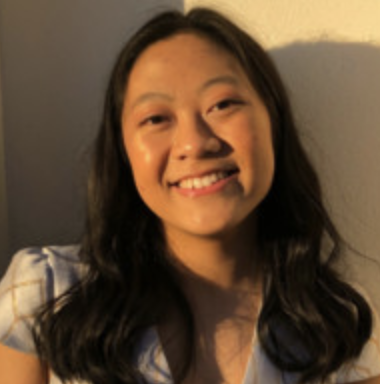Today we’re speaking with Andrea Tongsak, a rising junior at Oregon State University, who received a New Relic scholarship to attend this year’s virtual Grace Hopper Celebration conference.

Tell us about yourself. What is your major at OSU?
I am a junior this year, majoring in computer science. My concentration is in artificial intelligence (AI). AI has been really fun and tied in with research I was already doing about machine learning. I could apply what I was learning in my classes to my research and vice versa. I’m also a member of OSU’s chapter of the Association of Computing Machinery Women’s Chapter (ACM-W).
How did you find the New Relic scholarship?
The Grace Hopper conference is presented in conjunction with ACM-W and it’s especially well known for supporting university students who identify as women and are looking for career opportunities. A friend suggested that I apply for a scholarship through OSU’s ACM-W chapter, which was funded by New Relic. When I got it, I was really happy, because I'll go for an entire week and hear talks from a lot of important tech industry speakers.
What has this scholarship meant to you?
It means a lot. After my first year at another university before transferring to OSU, I seriously considered not going into computer science, because I didn’t feel like I belonged. I just hadn’t had enough experience yet. But, after growing more confident in my skills this year, I knew it was something I wanted to continue doing. Also, the support of my friends, family, and professors really helped me feel confident. The Grace Hopper conference is an opportunity for me to be around people who are like me and engage with them, instead of being the one female student in a class of 100.
Can you tell us a bit about the OSU ACM-W club and your participation in it?
The club is great and I love attending meetings. I also attend recruiting events that they host. The past year has been all virtual, but I am looking forward to having meetings again in person this year. I enjoy connecting with other women who I may see in my classes, but might not know that well. Growing my professional network is really important, too.
Tell us about your experiences with the other organizations you participate in, such as Girls Who Code.
I was involved with Girls Who Code primarily in high school. It's a great organization that reaches out to younger students in middle and elementary schools to teach basic coding skills. Being a part of that in high school was nice because I could see how learning about coding at an early age can be very helpful. My dad is an engineer, so I know it helped me become interested in computers. I also feel that being around people who were good at teaching, being patient, and conveying ideas in the organization helped me become a better student.
What do you hope to accomplish before graduating?
I hope to publish a research paper with my fellow classmates and attend a research conference for the first time. Although we’re usually assigned to work with one PhD candidate in my field, I’m working with two PhD candidates under one professor. One candidate is developing a new IDE that will help resolve code conflicts more efficiently and the other is researching how machine learning developers process questions and understand what they are working on through stackable reflections. Two very different topics, but it's great to use both sides of my brain!
Where do you see yourself post-graduation?
I hope to apply for grad school. Within computer science, you can pursue work in research or in the industry. I’m hoping that next summer I can find an industry-geared internship.
What advice do you have for other women interested in pursuing tech careers?
My advice is to be very authentic. In my application, I was very honest about my past struggles regarding fitting in and the challenges I have had to face so far in my college computer science journey. Imposter syndrome is much more common than I thought. So, I would just say to be authentically yourself and don’t be apologetic about admitting your struggles.
Étapes suivantes
New Relic is proud to be a supporter of the Grace Hopper conference and the OSU Chapter of ACM-W. To learn more about New Relic’s early in career programs check out our LinkedIn page.
Les opinions exprimées sur ce blog sont celles de l'auteur et ne reflètent pas nécessairement celles de New Relic. Toutes les solutions proposées par l'auteur sont spécifiques à l'environnement et ne font pas partie des solutions commerciales ou du support proposés par New Relic. Veuillez nous rejoindre exclusivement sur l'Explorers Hub (discuss.newrelic.com) pour toute question et assistance concernant cet article de blog. Ce blog peut contenir des liens vers du contenu de sites tiers. En fournissant de tels liens, New Relic n'adopte, ne garantit, n'approuve ou n'approuve pas les informations, vues ou produits disponibles sur ces sites.



